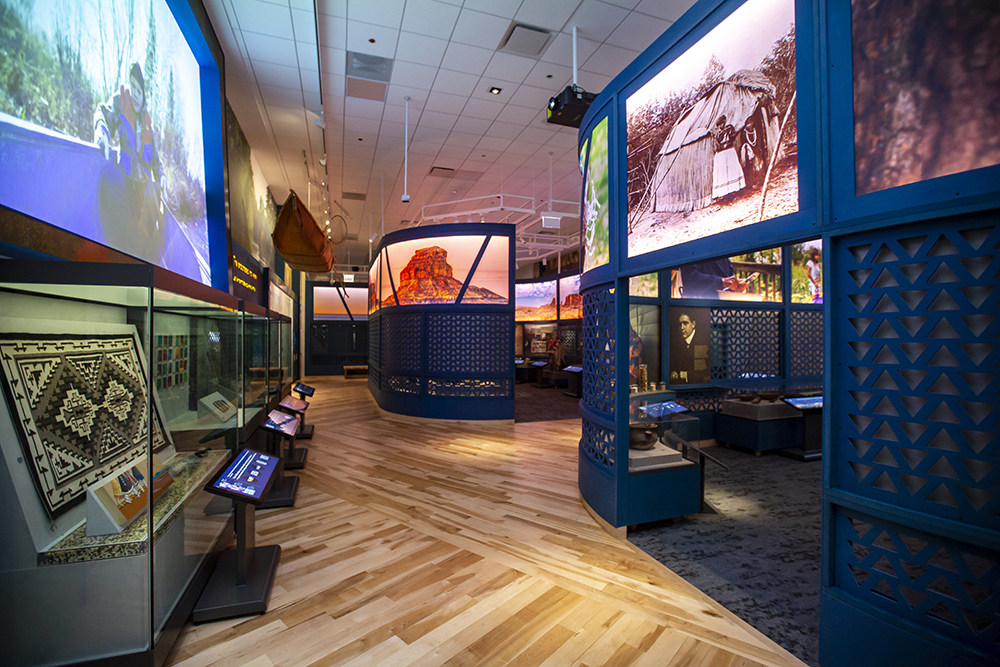
- Details
- By The Field Museum
Our Mission: Since the 1893 World Columbian Exposition, our organization has aimed to connect people to the natural environment and human history.
The Tribal Liaison plays a vital role in fostering meaningful relationships between the museum and Indigenous communities, tribes, and nations. Working closely with our Repatriation, Collections, Exhibitions, Institutional Advancement, and Legal teams, they are responsible for developing and implementing strategies that promote collaboration, respect, and understanding while ensuring the museum's programs, exhibitions, and collections reflect the diverse perspectives and contributions of Indigenous peoples. The Tribal Liaison acts as a liaison, facilitator, and advocate, working closely with tribal representatives, museum staff, and collaborators to promote cultural exchange, inclusivity, and mutual learning.
Strategy Development and Implementation:
- Develop and implement a comprehensive tribal relations strategy aligned with the museum's mission, vision, and goals.
- Advise and support museum leadership and staff on best practices for engaging with tribal communities, including protocols for cultural heritage preservation and repatriation.
- Assist the Government Affairs (Institutional Advancement) team in developing grant proposals and fundraising initiatives to support tribal relations programs and initiatives.
Relationship Building and Communication:
- Cultivate and foster strong relationships between tribal leaders, representatives, and community members with Field Museum staff to establish a foundation of trust and collaboration.
- Facilitate open and ongoing communication between the museum and Indigenous communities to ensure that all voices are heard and perspectives are represented.
- Coordinate and support advisory groups, and community forums to engage tribal representatives in decision-making processes related to the museum's activities.
Cultural Awareness and Education:
- Collaborate with museum staff across departments to ensure equitable cultural sensitivity, accuracy, and inclusivity in all programs, exhibitions,
educational materials, and other collaborative efforts related to Indigenous cultures.
- Research and stay updated on tribal histories, traditions, contemporary issues, and cultural protocols to inform museum programming and collaborative efforts.
- Provide training and guidance to museum staff on cultural competency, protocols, and respectful engagement with Indigenous communities.
Partnerships and Advocacy:
- Collaborate with other institutions, organizations, and scholars to foster partnerships that enhance the museum's tribal relations efforts. • Stay informed about legislation, policies, and initiatives that impact Indigenous communities.
- Help facilitate conversations and conflict resolution on issues related to tribal relations, as needed.
- Develop and maintain accurate records, documentation, and reports related to tribal relations activities and partnerships.
Qualifications:
- Lived Native American experience and/or knowledge of Native American history, culture, material culture, traditions, and customs. • Ability to nurture and retain existing relationships and to develop new relationships with federally and state-recognized Native American Tribes and First Nations of Canada.
- Knowledge of important federal and state Native American issues and laws including sovereignty, tribal government operations, treaties, and NAGPRA.
- Experience working directly with Indigenous communities, tribes, or nations in a cultural or community engagement capacity.
- Understanding of cultural protocols, repatriation, intellectual property rights, and related legal and ethical considerations.
- Excellent interpersonal, communication, and diplomacy skills to engage with diverse collaborators, including tribal leaders, museum staff, scholars, and the public. Particular experience with conflict resolution, mediation, or restorative justice practices is strongly preferred.
- Strong organizational and project management abilities to coordinate and lead tribal consultations, partnerships, and community events. • Ability to work collaboratively and cross-functionally with multiple departments and collaborators.
- Sensitivity and respect for diverse cultures and a commitment to promoting inclusivity and equity.
- Ability to maintain confidentiality regarding culturally sensitive matters when appropriate.
Important Note: In order to protect the health and safety of our employees, guests and their families, the Field Museum is requiring all employees to be fully vaccinated against COVID-19. Requests for exemptions from the vaccine will not be considered as given the nature of this position, we are unable to provide an accommodation for anyone who has not been vaccinated.
The Field Museum is an equal opportunity workplace and employer. We are committed to equal employment opportunity regardless of race, color, ancestry, religion, sex, national origin, sexual orientation, age, citizenship, marital status, disability, gender identity, Veteran status, or any other protected class. We strive to create a working environment that is free of all forms of discrimination and one that promotes human dignity and mutual respect among all staff. We believe every member of our organization enriches our diversity by exposing us to a broad range of ways to understand and engage with the world, to identify challenges, and to discover, design, and deliver solutions.
The Field Museum strives to ensure that our career website and recruiting process are accessible to all. If you are unable or limited in your ability to use or access our online application, or if you require reasonable accommodation in completing this application, interviewing, completing any pre-employment testing, or otherwise participating in the employee selection process, please direct your inquiries to [email protected].
Help us defend tribal sovereignty.
At Native News Online, our mission is rooted in telling the stories that strengthen sovereignty and uplift Indigenous voices — not just at year’s end, but every single day.
Because of your generosity last year, we were able to keep our reporters on the ground in tribal communities, at national gatherings and in the halls of Congress — covering the issues that matter most to Indian Country: sovereignty, culture, education, health and economic opportunity.
That support sustained us through a tough year in 2025. Now, as we look to the year ahead, we need your help right now to ensure warrior journalism remains strong — reporting that defends tribal sovereignty, amplifies Native truth, and holds power accountable.
 The stakes couldn't be higher. Your support keeps Native voices heard, Native stories told and Native sovereignty defended.
The stakes couldn't be higher. Your support keeps Native voices heard, Native stories told and Native sovereignty defended.
Stand with Warrior Journalism today.
Levi Rickert (Potawatomi), Editor & Publisher
